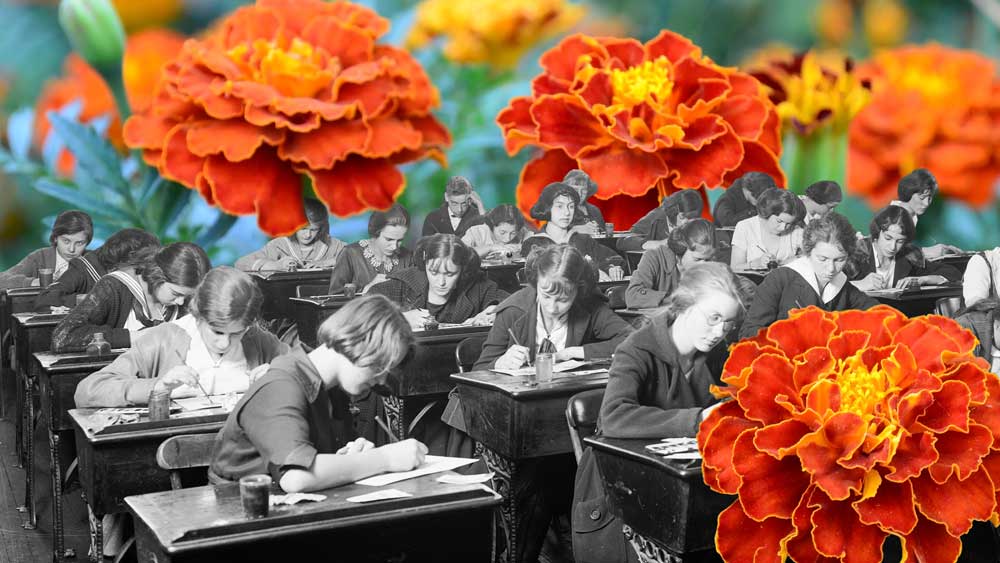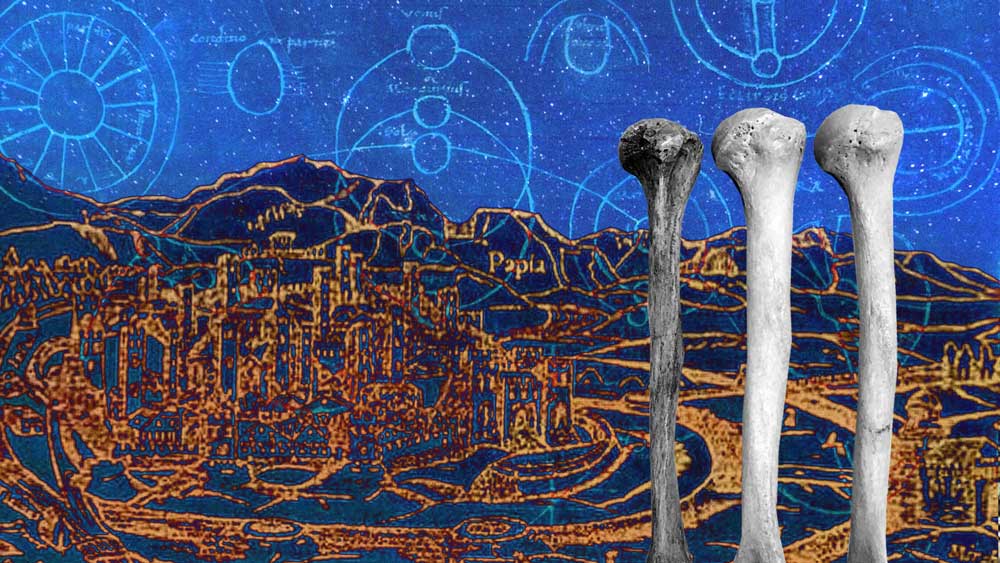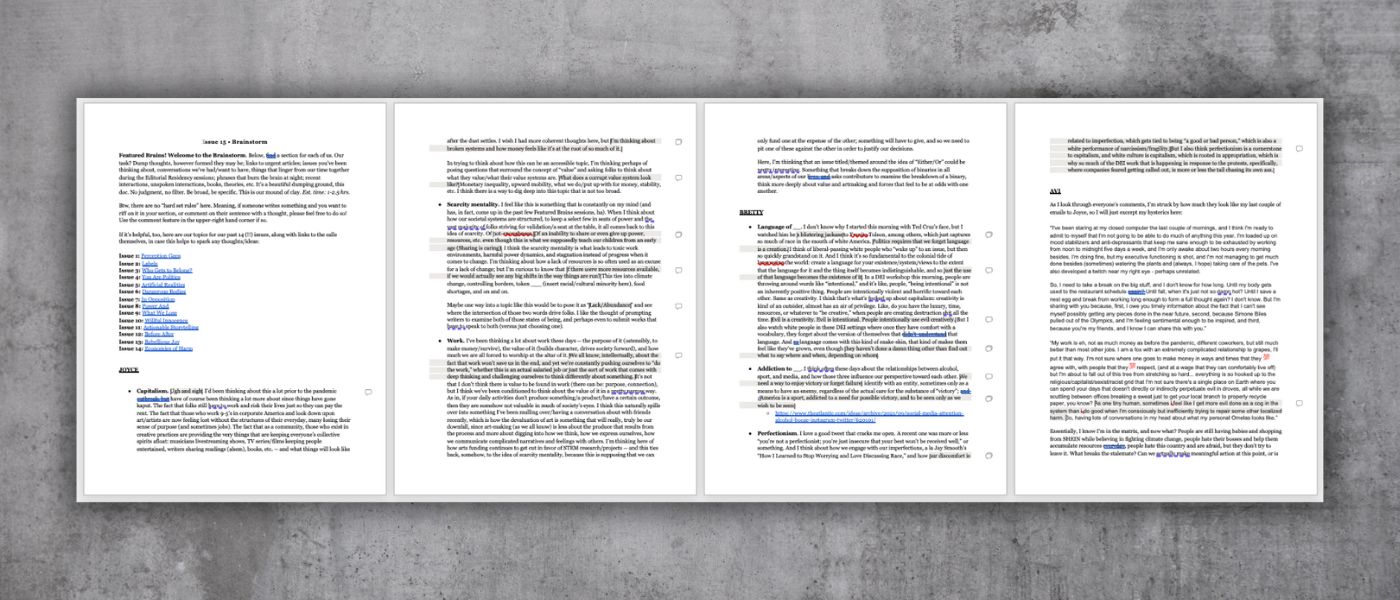I’d been teaching for three years — long enough to lose fifty pounds and develop an aggressive case of eczema — when a student asked a question that spun the classroom off its axis. It was twelfth grade philosophy, and I’d just introduced the class to Plato’s Theory of Forms.
“No way the chair I’m sitting on is just a copy of some ‘ideal’ chair,” said Malcolm. “Or that there’s a utopia of chairs somewhere that none of us can see.”
“We could use some ideal chairs down here,” said Levi, fidgeting in his seat.
We’d had a good lesson that day, and I was proud: No one had hurled a piece of furniture, called me a bitch, or tried to escape through the window. Even Aidan, who mostly held himself apart at the back of the room, had spoken up.
All the same, I couldn’t seem to move around the classroom quickly enough, students fluttering their hands in every direction. I wished once again that I were more efficient, capable of dividing my attention to fulfill everyone’s needs. I always felt behind, one oversight away from the entire classroom falling apart.
I made my way over to Stella, whose hand had been raised for a long time. That’s when the axis-spinning question arrived. “Miss,” she said, her face open and expectant. “Does utopia frighten you too?”
I remember the murmur of the air conditioner. I remember Levi farting, his classmates squawking and scattering like birds from a tree. And though I usually forgot to breathe deeply — finishing every lesson short-winded and spent — a sudden stillness crashed over me. I could feel my own heartbeat. Feel my constant swirl of thoughts coming apart, each one glittering on its own terms, brightly.
Where did Stella’s question come from? How had it taken shape? I couldn’t believe it had grown out of the conditions of our classroom, which always fell short of my ideal. I dreamed of sitting down with each student and providing detailed feedback — of having the time to observe closely, plan intentionally, and craft a course of study that spoke to the genuine predicaments of my students’ lives. Only then, I thought, would I be able to see education actually unfolding, instead of these fragile seedlings that bore fruit rarely, if at all.
And yet — here was Stella’s question. Somehow it had ripened, drawing strength and urgency from the material of her life, until we all heard it fall from its tree.
To borrow from a Celtic proverb, classrooms are thin places: zones where the boundary between worlds feels unstable. They exist in the in-between — born of the world as it is, angling toward the world as it could be.
This is one way to explain why I moved across the country for teachers college. Yes, I was lured by the promise of a steady paycheck, health insurance, and one day, a pension. But more importantly, I wanted a vocation — a career that could make use of my anxiety about the world. Once I arrived, I was relieved to find I wasn’t alone.
At the bar, in the library, and on the quad, my colleagues and I would fantasize about our future classrooms. We’d work to make our bookshelves enticing. We’d labor to ensure even the most disengaged students felt seen and heard. We’d strive to forever change the way teenagers saw The Lord of the Flies, the “Vietnam” War, the architecture of a beehive. A grand vision was at our fingertips, and as soon as we met our students we vowed to make it real.
Stepping into a brick-and-mortar classroom was then a profound, almost devastating shock. That first semester after teachers college, I watched helplessly as a student ate a handful of playing cards in the middle of a manic episode, and found myself cowering as another threw a desk in my direction when I asked him to change seats. One teenager scribbled drawings in the margins of her homework — self-portraits in which she was decapitated, or dying an otherwise gruesome death — and try as I might, I couldn’t unsee them. I spent hours relaying these incidents to the school’s counselor, and hours on hold with Child Protective Services, unsure whether to press 1 (for Imminent Danger) or 2 (for Less Imminent Danger) in their automated menu.
To do the job properly, I realized, teachers would require a vast reservoir of resources: more time, more professional training, more support for students with diverse needs. But it was clear that these resources were not forthcoming. Soon after the playing card incident, I complained to a colleague that my pleas for an educational assistant had come to nothing.
“I can’t believe it,” I said. “Doesn’t the school board see how much we’re struggling?”
He laughed dryly. “Good luck — I’ve been requesting an assistant for years.”
So continuing to do the job at all would require a vast reservoir of goodwill on the teacher’s part. And because I was passionate — because I believed ardently in the cause — I regularly went to bed at one, two, and three a.m., head swimming with the latest research and the next day’s lesson plans. With experience, I reasoned, I’d learn to pave over certain cracks in the system and prevent my students from falling through. In the meantime, I’d just have to find a way to survive.
Several days after Stella asked her question, I assigned my twelfth grade students a story by Ursula K. LeGuin. “The Ones Who Walk Away from Omelas” describes a community free of poverty, crime, and social hierarchy — a utopia, in other words, except for the fact that its equilibrium hinges on the perpetual misery of a child imprisoned in a dark, filthy chamber.
The child is depicted as naked and emaciated, covered in sores from sitting day after day in their own excrement. Though someone will occasionally enter the chamber to fill their food bowl and water jug, or to gawk with “frightened, disgusted eyes,” the child’s cries go unanswered, as they have gone for years. And yet despite the cruelty implied by this imagery, readers are made to understand that the child’s suffering is necessary, even beneficial, to the city of Omelas. Relieving the child would mean subjecting everyone in Omelas to all the ills of the world.
Initially, Omelas’ children are spared this ugly truth. Then, in their preteen years, they’re taught the mechanics behind their utopia. Many choose to visit the child, where they learn that “the terms are strict and absolute; there may not even be a kind word spoken to the child.” Most manage to move through their outrage and make peace with the arrangement, this terrible knowledge woven into their happiness like a wrenching strain of music. As the title suggests, however, a select few cannot. Disturbed by what they’ve seen — unable to reconcile the ends with the means, or to single-handedly change the outcome — they choose to walk away from Omelas altogether.
By this point in my career, I’d watched so many lessons crash and burn that it seemed wisest to contain my expectations. While I treasured the small successes, like our previous discussion on Plato, these glimmers were fugitive, exceedingly difficult to repeat. So I was both surprised and delighted when LeGuin’s story led to an impassioned classroom debate.
“If suffering always exists,” Alex said, “why should more than one person suffer?”
Elias agreed: “One speck of dirt doesn’t make the whole shirt dirty.”
But some of his classmates couldn’t stomach such a trade-off. “Do we honestly believe,” Sunil asked, “that evil stays contained like that?”
Stella nodded. “They’ve got to be hiding something else.”
After another student dismissed the story as “overblown science fiction,” Imogen spoke up: “Yesterday I walked by a homeless person; he was clearly suffering, probably on fentanyl or something else. Sure, maybe it wasn’t conscious, but when I walked by without making eye contact I made a choice. I decided he was less important than my convenience, comfort, pleasure, whatever.”
We all fell silent after that.
I still remember how sympathetic my colleagues were during my first year of teaching. Several regularly pulled me aside, asking after my baggy clothes and dark undereye circles. Many offered advice: Don’t take it so seriously! Remember, eight hours of sleep and three square meals — we got through it and so will you. Some suggested I give the students less space to ideate: that free-form discussions and open-ended questions only led to arguments and bad behavior. Others encouraged me to send students to the office more often, or scare them into submission with lengthy exams.
Occasionally, I’d meet my former classmates for dinner or drinks. At first we’d make an effort to talk about other things, but the conversation would invariably wander back to our classrooms, scattered east to west across the city.
One classmate took her students on field trips to science museums and classical concerts; another desperately needed more tables and chairs. One school had an entire roster of staff trained to support learning disabilities like dyslexia; in my school, there were sometimes more than fifteen students with learning disabilities in a single class, for which teachers received little support.
A few drinks in, some of us would admit we were tempted to cut corners, to resort to the strategies we swore we never would: vaguely skimming students’ work before grading, using harsher methods of classroom management, and allowing students to mess around on their phones during class time. The question of work-life balance was becoming a joke.
“I can’t turn the thoughts off,” one classmate said. “I think about work from the moment I wake up until the moment I go to sleep.”
“You actually go to sleep?” another responded, laughing.
I also made light of the frantic days and sleepless nights. Inwardly, though, I was adrift, grieving my naiveté and sense of purpose. Before becoming a teacher, I’d been so sure I knew what education was for. Yes, we were paid to teach reading and writing, history and math. But this was a pretense, a clever front: Our real work was fostering pluralism and democracy, tolerance, and, God forbid, love. Now those ideals seemed to float high above my head, untethered from the ground like an unreachable advertisement for education.
I’d uprooted my life for this vocation, and so was afraid to admit I was depressed. Late at night, I’d lay awake wondering: If we can’t create better classrooms, how on Earth are we going to create a better world?
Inspired by their initial reactions, I’d asked my twelfth grade students to write responses to LeGuin’s story. They needed to be short — no longer than two hundred fifty words each. I had it all figured out: If my students kept to the word limit, and if I spent no more than seven minutes on each one, I could grade all one hundred forty assignments in just over sixteen hours.
But their responses were rich and deeply felt. One student wrote eloquently of the parallels between the imprisoned child and underage sweatshop labor in her home country; another related the decision to walk away from Omelas to his estrangement from an abusive family member. I soon abandoned my calculations and lingered over the responses, savoring the vibrant inner world each one implied.
My student Aidan still hadn’t turned in a response. This wasn’t exactly a surprise; he hadn’t submitted anything since September. While he continued to show up, I knew he desperately wanted to be somewhere else — somewhere he could answer questions that had tangible meaning for his own life.
One afternoon, emboldened by the breakthroughs I’d seen in many of my students’ assignments, I asked him what he thought of the story.
“’s alright, I guess,” he said. “Sucks for the kid.”
“Did Omelas remind you of anything else? Something in our world, maybe?”
He looked at me blankly, picking at a loose thread on his sleeve.
“Okay,” I said. On the rare occasions I’d seen Aidan animated, he’d been talking about his part-time job as a landscaper. “When you’re hired to work on a garden,” I said, “how polluted would the soil have to be before you’d walk away?”
He smiled. “You wouldn’t walk away if you’re getting paid.”
“Fair enough. But bad soil produces bad plants, right?”
“Sometimes. Takes a lot of work to get anything good to grow out of bad soil. Like if it’s got too much clay and doesn’t hold water. Or if it’s sandy and moisture runs straight through.”
I could see him beginning to forget my line of questioning and relax into the conversation. But there were only ten minutes left, and I needed to check in with other students: report card season was approaching, and I was still missing so much work.
“Good, put something down about that,” I said, standing to leave. He immediately shrank down into his seat.
“Fuck, I don’t know what to write,” he snapped, crumpling his blank piece of paper. “I’m stupid — this isn’t worth your time.”
I knew this sinking feeling well: helplessness, mixed with guilt and regret. I tried to catch us both. “Please don’t say that. You might feel frustrated, but you’re not stupid.”
He ignored me, shoving his headphones into his ears and laying his forehead on his desk.
The sinking feeling trailed me as I worked my way around the room: There’d been a precious opening, and I’d wasted it.
Like many of LeGuin’s narratives, “The Ones Who Walk Away from Omelas” would be better described as an “ambiguous utopia.” The townspeople aren’t ignorant of the horror that underpins their happiness, and struggle to make sense of the intersection between the two. “It is the existence of the child,” LeGuin writes, “and their knowledge of its existence, that makes possible the nobility of their architecture, the poignancy of their music, the profundity of their science.” Their happiness is neither “vapid” nor “irresponsible,” but commensurate with its cost.
LeGuin is usually considered a science-fiction writer, but as my student Imogen intuited, Omelas is a veiled description of our world. Only the willfully ignorant deny the way pain and suffering settle unevenly on Earth, snowing over the vulnerable while leaving the privileged unscathed. Sometimes we even speak of this suffering like we speak of the weather — as some ambient, implacable pattern beyond our control.
LeGuin is clearly acknowledging our human hand within this dynamic, uncovering its complicated relationship to choice. But she’s also gesturing toward something deeper. Omelas advances, I think, a subtle argument about the unlikely marriage between beauty and horror. The townspeople’s terrible knowledge doesn’t exist alongside, but actually makes possible, everything they cherish most in their community.
I’m reminded of the mythos of Apollo, who crafted the human capacity for music in the form of a lyre, using the body of a tortoise he’d killed and gutted himself. Extrapolating from this narrative, we might argue the whole lineage of human making is inextricable from violence — though this can’t be the only possible conclusion. The history of human making must also be one of reinvention and discovery, of transgressing the borderlands of what’s possible.
And LeGuin does allow for this possibility. The ones who walk away arrive, against the odds, at a different conclusion — one that impels them to carve through the distraction of ambient weather on their way to some mysterious destination. Of this destination, LeGuin writes: “I cannot describe it at all. It is possible that it does not exist. But they seem to know where they are going, the ones who walk away from Omelas.”
Whenever I returned to the story, I was struck by its suggestion that we, too, could make that choice. And yet a part of me remained unconvinced. I couldn’t help but think: If everyone walked away, wouldn’t the child be left to fester in their own excrement forever?
My students couldn’t stop talking about Omelas, so I ran with it. We studied Bentham and Kant, and spent whole classes debating their philosophies on human flourishing. Bentham would have condoned the child’s suffering, the class decided, as it facilitated the happiness of the greatest number. Kant, on the other hand, would take the opposite view, insisting that every human being was an end in and of themselves. To instrumentalize a person, he believed, was to violate their basic dignity.
But choosing a side wasn’t simple. Students who preferred Kant’s philosophy — sometimes known as deontology — were troubled. Some pointed to the fight against climate change, and asked: Is there room for eight billion people to each be an end in and of themselves? It wasn’t possible to prioritize both personal dignity and collective action, they argued, if collective action meant subordinating individual interests to the greater good.
In time, students began to linger well after the bell had rung, keen to continue discussing the day’s lesson. I was hard-pressed to put an end to the conversation, and in truth I didn’t want to: The classroom seemed to be finally lifting off the ground, a hot-air balloon released from the concerns that had once weighed it down. And the longer we floated in a state of exhilarating suspension, the further I drifted from any sense of my own desires and needs. I regularly forgot to eat, and developed a UTI from holding my bladder so often. I used cortisone cream like body lotion when angry patches of eczema started to bloom all over my body. I slept, on average, three to four hours a night.
One morning, my student Stella stayed behind, slumping into the chair by my desk. I stiffened when I noticed fresh cuts crosshatching her upper arms.
“This deontology thing,” she began. “I want to get it, but I just don’t.” She looked down at her hands, which were clasped in her lap. “It’s nice to think everybody can thrive and be happy. But it’s like LeGuin says, in the story — even if they did let the child go, it’s probably too late for them. Sometimes you’ve been through too much, and happiness stops being a possibility.” She looked up. “Don’t you think so?”
“That might be true,” I said carefully. “But I also think human beings are changeable, and the scope of possible change is vast. Reading and studying philosophy are ways of thinking into what’s possible, and of working to make it real.”
Even as I spoke these words, there was an audible note of reservation in my voice, like the flattened center of a minor chord. While it seemed essential not to overlook my immediate influence — the kinds of change I could enact in my classroom, alongside students — I didn’t doubt that meaningful progress at scale would require an uncommon influx of political will. And while elected officials loved to wax lyrical about the importance of education, no teacher I knew could point to the results of this so-called commitment on the ground.
Maybe Stella had heard my reservation too; she was quiet, and looked back down at her hands. I couldn’t tell if she was crying or thinking.
“You know,” I said, “my door is always open.”
Her smile was strained. “Yeah, I know.” She stood up, swinging her backpack across her shoulder. “Don’t think I’ll be at school tomorrow, just so you know. I’ve got some stuff going on.” She glanced at her phone and gently pulled the door closed behind her.
After my conversation with Stella, I taught three more classes and sat through a two-hour staff meeting before heading home. Only then did I allow myself to break down. I cried for a long time: desperate, gulping tears, the kind that bring only exhaustion, no relief.
Once I’d finished crying, I washed my face, reheated leftovers, and opened my laptop. I hadn’t yet started the one hundred forty report cards that were due by the end of the week. I’d only just begun drafting my comments when my boyfriend called.
“Oh, you know, teenagers,” I responded when he asked about my day. Like many of my colleagues, I’d taken to using a sardonic shorthand when speaking about my job — as if by shoehorning my days into clipped containers I could, indeed, contain them. He then asked what I was doing, to which I replied: “Ten guesses: report cards.”
He sighed. “Lauren, don’t you ever feel like you’re being exploited?”
We’d circled this drain many times before. I resented his use of the word exploitation, which didn’t map neatly onto my experience. Wasn’t exploitation the act of taking unjust advantage? It couldn’t be exploitation, I thought, if you were being used toward an end you believed in.
But that evening I snapped into a vision of myself from the outside: underslept, hunched over a laptop, copy-and-pasting sentences that claimed to give families an idea of how their children were doing. Even I couldn’t deny the irony. How could I comment on how my students were doing when I was barely attuned to myself? When I brushed off the concerns of those who loved me most?
I said goodnight to my boyfriend, abandoned the report cards, and pulled my copy of the I Ching off the shelf. It had been a gift from a friend, but I hadn’t had time — I never had time — to take a look. Only then did I notice it was LeGuin’s translation.
The streetlights cast oblique shadows on the walls of my living room. As per the custom, I threw the coins six times: each coin signaled a line, and each line spelled out a hexagram. All the while I held a question, tender to the touch, in my mind: Should I stay, or walk away?
Hexagram 31, Against War. It read:
Even the best weapon
is an unhappy tool,
hateful to living things.
So the follower of the Way
stays away from it.
I sat with this passage for a long time. It was true that I’d willingly signed up to work in the trenches, on the front line; this was exactly the kind of language that surfaced in staff rooms to describe our shared predicament. It was also true that this was the language of warfare, not social healing.
It occurred to me then that if this job depended on my humanness — on my willingness to stay curious and empathetic, day after day — it also seemed intent on turning me into a blunt, unfeeling instrument. I knew that caring deeply was the only thing that mattered, but I hadn’t realized it was also the job’s most dangerous occupational hazard. I could consent to caring less, but that felt treacherous — the worst kind of defeat. What I really wanted was to be a wrench in the system, but not if that meant backing myself into a dark chamber, begging for relief, only to have my cries go unanswered as they had gone for years.
The school year stumbled on. I moved in with my boyfriend, who managed to tear me away from schoolwork long enough to notice the snow segueing into cherry blossoms and to eat three square meals a day.
Eventually, my students’ interest in Omelas dwindled, then dried up. We moved on to Descartes, whom they hated, and Lao Tzu, whom they loved. We watched The Matrix, and weighed the merits of preserving blissful ignorance against those of plunging, like Neo, into the wilderness of the unknown.
I drafted a resignation letter, but couldn’t bring myself to send it. I was increasingly worried about Stella, who’d stopped participating, and about Aidan, who’d retreated even further into himself. On the rare occasions he removed his headphones, he was given to making cruel jokes at his classmates’ expense.
One afternoon, the class was working on logical fallacies. I’d just explained the “bandwagon fallacy”: the problem of justifying decisions or actions based on their popularity.
“I’m going to vote for so-and-so,” I suggested, “because the polls say she’s in the lead.” My remark was met only with blank stares. “Can you think of any other examples?” I prompted. “Maybe from your own lives?”
“Yeah, I can,” replied Aidan. Several students turned their heads in surprise. “Saying ‘Black Lives Matter’ because everyone else is saying it.”
My entire body went cold.
“What the fuck, man?” said Stella.
“It’s true,” Aidan said, sitting a little taller. “It should be ‘All Lives Matter.’”
The air was suddenly laced with an itchy, volatile energy, discomfort spreading like a rash. When one student raised his voice, the entire class broke out into a verbal brawl.
I cast out for a line, something I could use to commandeer the situation. This was clearly a “teachable moment,” far more important than the lesson I’d planned, but my mind was drawing a frantic blank.
“Okay,” I shouted, “let’s come back—”
The school bell cut through the discord. I waded through the swell of students toward Aidan, who pushed past me into the hallway. Abandoning the idea of going after him, I made my way to the counselor’s office, cheeks red with self-incrimination.
On her threadbare couch, under her floor lamp’s cone of light, I told her about Aidan’s comment and my concerns for the class — about my persistent fear of fucking everything up.
“I’m not sure teaching’s for me,” I said. “There’s no end in sight.”
She offered me a piece of licorice from the bowl on her shelf. “That’s interesting,” she said. “What end would that be?”
Several weeks after the end of the school year, I walked past Aidan on the street. He was kneeling in a patch of grass, loosening the roots of marigold plants and tucking them into rich soil.
On a balmy evening that June, I’d watched him cross the stage to collect his diploma. In a mysterious burst of motivation, he’d caught up on his schoolwork — though he continued to hold himself at arm’s length and never again opened up the way he had when talking about Omelas and bad dirt.
I’d been tasked with clicking through the slideshow that projected each student’s name onto the auditorium’s screen. It struck me then, in that darkened tech booth, just how strange this work had been. To spend day after day in the same room, with the same personalities; to unearth ideas, dismantle others, construct a whole world; and then disperse toward separate destinations like so many strangers disembarking from a plane.
This past September, I stepped back from the classroom almost entirely. It was time to tend to other areas of my life — time, finally, to write. My doubts about leaving were tempered by the knowledge that Aidan, Stella, and their classmates were leaving too, off to take their places in the world, equipped with whatever tools we’d been able to pass on. It seemed that if I’d found a way to tolerate the system, it had been for those students; that they may even, in some mystical sense, have redeemed it. As I watched them throw their graduation caps into the air, I felt that a story had come full circle, and I could release myself from its bindings.
For the first time in years, I no longer work until two a.m. or lie awake thinking about report cards. I still wrestle with how best to make myself useful, now that I’ve walked away. But I like to think that the renegades in Omelas also chose to trust in the simple value of saying no — of refusing to pollute desired ends with undesirable means. That they, too, believed it was possible to protect personal dignity and work toward collective action at the same time.
I recently had coffee with a friend — a full-time teacher — who burst into tears recounting her day, her week, her year. “I think it’s me,” she said. “I can’t handle what the thing requires.” When I asked what she meant by “the thing,” she made a loose, searching gesture, her hand closing on empty air. “The dream, I guess, or the system. Maybe both.”
I remembered then how difficult it once was for me to separate the two — to catch the moment, amid the relentless onslaught of moments, when the system had hammered a dream out of shape. When the possibility of a better world, as Stella’s question suggested, had been warped into an object of fear.
I know now that it was misguided to assume I could draw a protective ring around the classroom, dispelling pain and suffering through a well-crafted lesson plan; our efforts are always permeable to forces beyond our control. But I also know that there was a spirit in that classroom: a certain, uncertain grasping. I’ve heard other teachers speak of it too. The future may be mysterious, but I’m sure that my place in it — and Aidan’s and Stella’s places, as well as the place of the man who risks dying of an overdose right there beside you in the street — is bound up in that grasping.
Something like the gesture my friend made, which is the effort to enlarge what we can’t quite name, and to keep grasping through all kinds of weather. Something like the gesture of planting marigolds, with no guarantee of seeing them bloom.




